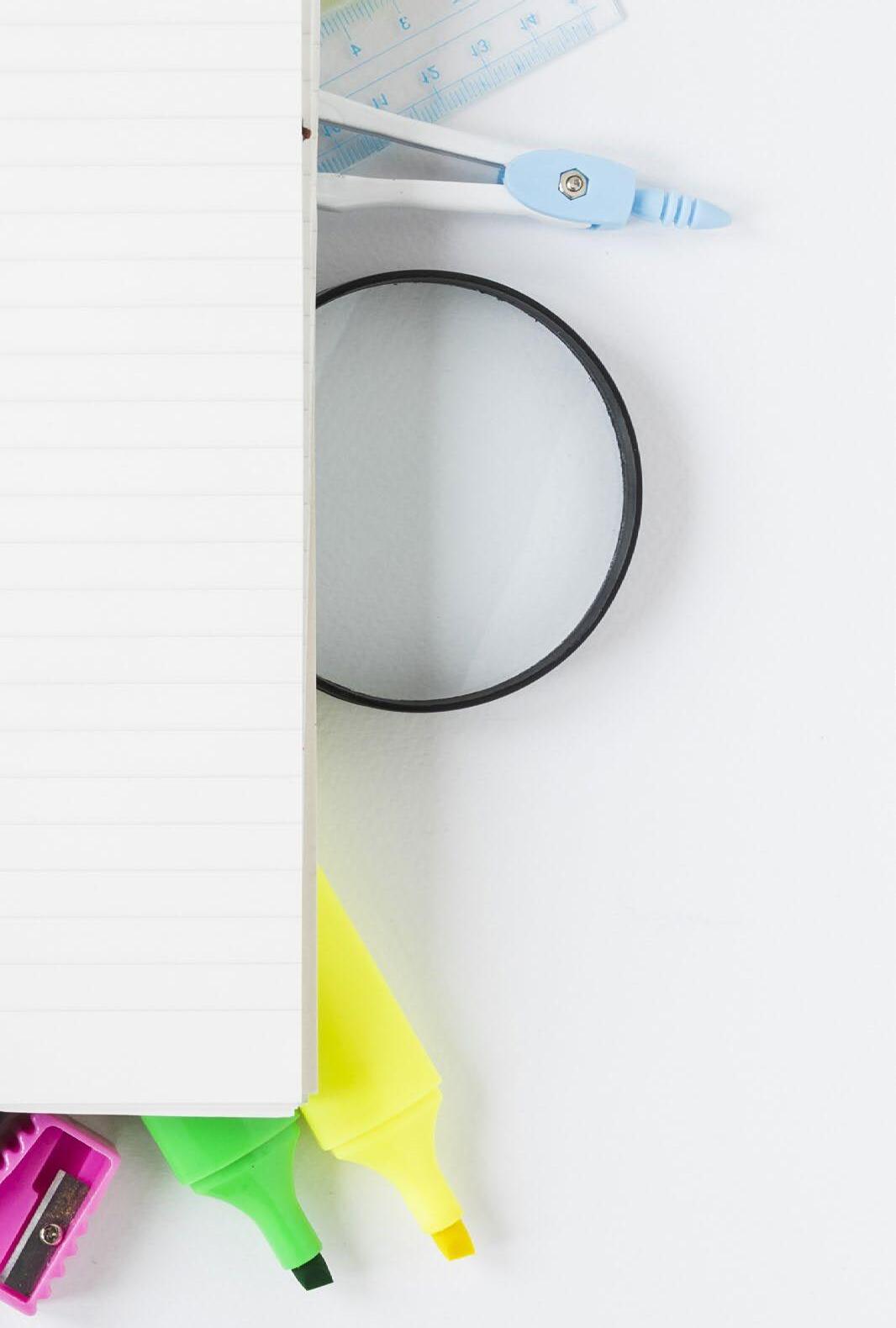
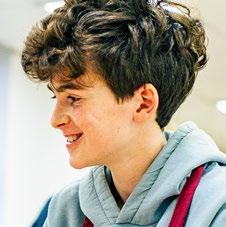



9
The School follows a two-week, 60 period timetable. Each period is 50 minutes long.
Students are taught in mixed ability group settings except for mathematics, English and science where groups are set based on ability. Below you will find a summary of the main topics covered in III Group, the name of the Head of Subject and the number of periods students have of each subject per fortnight.
In III Group homework is set for up to 90 minutes per night (with up to 45 minutes per individual subject task.)
Below you will find a summary of the main topics covered in III Group, the name of the Head of Subject and an indication of the number of periods students have of each subject per fortnight.
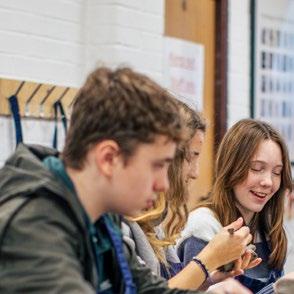
Amy Anderson 8 periods
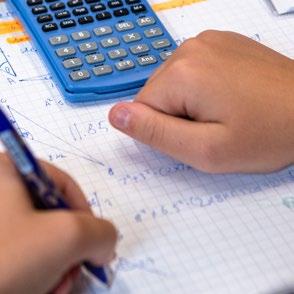
Claire Slater
8 periods
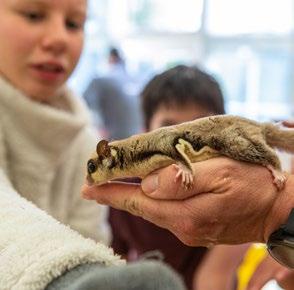
Andrew Lambie
8 periods
Hours per subject over two-week timetable
Literature as a Lens on Society. Students engage with powerful themes of identity, prejudice, and power through Noughts and Crosses, using the text as a springboard for discussion and analytical writing. They move on to Macbeth, examining Shakespearean language and dramatic tension. In the summer, students read a range of diverse short stories and poetry, using them to practise comparative analysis and build their own creative voices.
III Group is an important transition year into the GCSE mathematics (Pearson Edexcel) curriculum. Students build on topics introduced in II and III Group. There is a greater emphasis on communicating how answers are achieved developing annotations to supplement their written calculations. Links between topics are made; when solving problems students are expected to apply and use a variety of mathematical skills. Students focus on topics that are common in both the Foundation and Higher GCSE syllabus. Basic trigonometry (sohcahtoa) is introduced this year. Higher attaining students are introduced to some topics that appear only in Higher Tier such as recurring decimals to fractions use of surds etc. Sparx Maths is used for homework and independent learning.
Number of periods over two weeks
In III Group students commence their AQA GCSE course across all three sciences. Students are set according to ability and cover the Trilogy (Combined Science) material across the year group. End of topic tests are carried out each half term. Group settings are flexible and are decided in conjunction with all three science teachers and the Head of Department.
Biology: The focus in biology is topics on cells, enzymes, the heart, lungs and digestion including food tests.
Chemistry: The focus in chemistry is on the topics of separating mixtures, history and structure of the atom (including ions, isotopes and balancing equations), the Periodic Table (including Groups 1 and 7), structure and bonding.
Physics: The focus in physics is on energy and the Particle Theory of Matter. Students are introduced to a number of equations that are required in their GCSE examinations at the end of V Group (Year 11). We practice selecting the appropriate equation for a scenario alongside manipulating the equation to calculate different variables.


Charlotte Leeke 3 periods
In III Group students start to cover the Geography GCSE. They explore a range of 'big questions' related to both human and physical geography as listed below:
• Why are some countries more developed than others? (Development Dynamics)
• Are there enough resources to go round? (People and the Biosphere)
• Why are the world’s forests under threat? (Forests Under Threat)
• Is a future free of fossil fuels really achievable? (Consuming Energy Resources)
• How should the Cambodian government deal with the issue of deforestation? – GCSE style decision making exercise
Becca Toepfer 3 periods
In III Group students explore the campaign for Women's Suffrage, the First World War, the Second World War and the Holocaust. It is a twentieth century study that includes an optional (but popular!) Battlefields Trip to the Somme. The aim of the course is for students to be able to explain the causes and consequences of historical events and create hierarchies of importance. For example, students evaluate the different causes of the wars and their impacts on society. Students work with a broad range of materials, with lots of source work and literacy skills.
Cyrille Simon 3 periods
Students communicate in French and gain an active awareness of the language and the culture in general. The emphasis is on the four core skills of speaking, listening, reading and writing, preparing for the requirements of the GCSE course. Students are expected to produce extended, challenging and imaginative pieces of written work. Extended passages of French are expected to be understood in texts and on recordings. Students follow the course 'Allez 2' and the AQA GCSE Foundation course. Topics covered include: media and entertainment, new technologies, health, local area and environment and the world of work.
Cyrille Simon 3 periods
IIII Group Spanish students expand their vocabulary and reinforce the basic structures of the language. The emphasis is on the four core skills of speaking, listening, reading and writing, preparing for the requirements of the GCSE course. Students follow the course 'Zoom 2' and the AQA GCSE Foundation course. The following topics are covered during the year: Family and friends; comparisons; food shopping; eating out; prices; clothes and types of shops; holidays and places of interest; opinions and health; the world of work; environment and cultural information about Spanish speaking countries. We encourage the use of IT both in class and at home, with Quizlet, linguascope and languagesonline our preferred platforms.
Hollie Sparrow 3 periods
In III group students begin to examine world theatre and how it has influenced our culture. Students also learn about how drama is used to explore issues and ideas. There is emphasis on performing to a live audience and students are taught how to discuss their work using more sophisticated technical vocabulary. During the academic year students learn to work collaboratively with others to create new ideas and to explore and evaluate a variety of drama texts. We also focus on the development of social skills such as offering
ideas, sharing thoughts to overcome problems and listening to others.
Emma Semple 3 periods

Students practise the observational drawing of the figure in a variety of drawing media and learn formal elements and techniques such as proportion and tonal drawing. They subsequently develop their work into paint and clay, particularly studying the work of Matisse. In the second and third terms they are taught to structure and develop their own student-led projects based on chosen themes and artists. This process helps them to build the confidence needed to begin to develop their own creative voice. They have the opportunity to work in the media of their choice from a wide range of options including painting, printmaking, ceramics, photography, video and textiles.
Gavin Fraser-Williams 3 periods
In III group, students work on developing key practical, creative, analytical and design skills before considering GCSE choices. The first project is advanced metal based, and takes students from initial exploration of ideas at quarter scale using direct modelling with aluminium wire, through to a full scale MIG welded steel candle holder. The second, and final project at Key Stage Three, pulls together prior learning, and gives all students
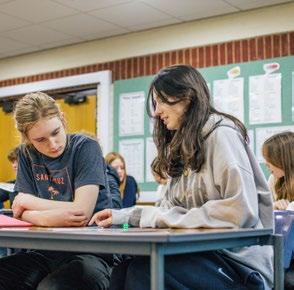
the opportunity to use the full range of materials and techniques available in the workshop – producing a “fast food” vehicle which is raced against peers at the end of term. With some students not continuing to 3D Design at GCSE level, we aim to ensure that all students have used III Group to develop their wider independence, problem solving, team working and decision making skills - alongside subject specific designing and making skills needed by those who do continue with 3D Design as an exam subject in IV Group.
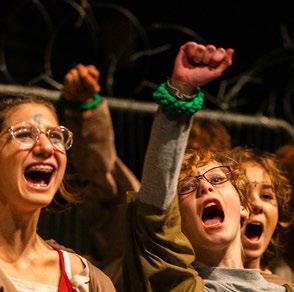
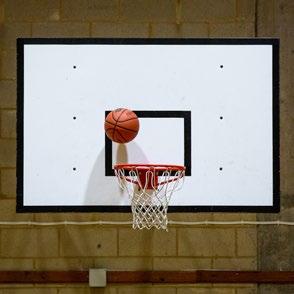
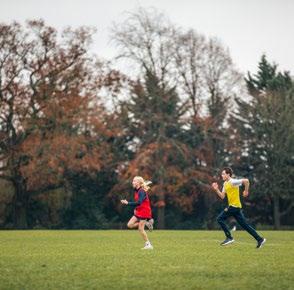

Ann-Marie Knight 2 periods
During the year students are encouraged to gain confidence, understanding and enjoyment through a variety of listening and practical activities. Lessons are predominately practical music-making sessions, where singing is encouraged and all students have access to musical instruments. Group work, performance and sharing of ideas occur regularly. Creating a band and centring learning on positive self-directed tasks is a key feature. Projects include “variations” (continuing Western classical structures), film and TV, popular songs and the music business and marketing alongside creating a cover song and music video.
Lyn McGregor 4 periods
Autumn/Spring Term: swimming, Sports education (football/netball), trampolining, health related fitness, handball, touchball, spike ball, gymnastics.
Summer Term: Athletics, striking and fielding and tennis.
Students also have half a term of swimming, introducing practical elements of the RLSS National Pool Lifeguard Qualification to enhance their knowledge of water safety and rescue skills, giving them a taster of the role, should they wish to complete the full course, when they are 16 years, and pursue a job as a lifeguard in a UK pool.
Lizzie Hedderson
2 periods
Personal, Social, Health and Economic education includes three main themes which are each taught twice a year: health and wellbeing; careers and finance; and relationships. In III Group, students explore healthy and unhealthy friendships and assertiveness. We cover goal setting as part of the GCSE options process. The unit on respectful relationships includes families and conflict resolution. Healthy lifestyles looks at a balanced approach to diet, exercise and wellbeing and includes some first aid training. Peer influence and drugs, how to manage peer pressure and risks associated with substances is covered.
A unit on Intimate Relationships includes consent, contraception and attitudes to pornography. Intimate relationships is also taught as a drop down day and includes consent, contraception and attitudes to pornography.
Princess
Curtis-Broni 2 periods
In III Group, students consolidate and extend their computing knowledge, preparing them for the demands of GCSE and beyond. They tackle advanced programming concepts such as functions, arrays, and file handling, applying computational thinking to design efficient solutions. Pupils also study emerging technologies, artificial intelligence, and the principles of data science, linking theory to innovation in industry and everyday life. At the same time, students reflect on their digital footprint, developing a mature awareness of online safety, privacy, and digital citizenship. They are encouraged to apply their computing skills across the curriculum, from research and data analysis to creative media production. By the end of Key Stage 3, learners will be confident digital problem-solvers, equipped with transferable skills in logic, creativity, communication, and critical thinking.
Cookery, Philosophy and Ethics, Environmental Studies and Critical Thinking are taught in rotation across the year in approximately six week blocks. Students study one of the three subjects for one lesson per week (approximately 18 periods per year). Nat Baker, Deputy Head
Ros Black 2 periods
III Group Food and Nutrition lessons begin to introduce students to the key skills and theoretical knowledge they will need should they choose to continue the subject at GCSE level. The course is largely practical and takes place in the Vege Centre, building on the foundations laid in I and II Group (Years 7 and 8).
Students prepare a wide variety of nutritious dishes, including veggie chilli, fresh pasta, sweet and sour vegetables, and choux pastry. Through these handson lessons, they develop a solid understanding of food and nutrition, learn how to work safely and efficiently in a kitchen, and gain confidence in preparing and enjoying fresh, homemade food.
Lizzie Hedderson
2 periods
In philosophy and ethics, students explore challenging and thought-provoking questions using the community of enquiry model. This develops speaking and listening skills by using philosophical dialogue to both ask and attempt to answer puzzling questions. Topics include 'Can we know anything for certain?', 'What is a good life?' and 'What is happiness?'. Through discussion, students are able to create their own measured responses and consider how their thoughts are similar and different to others, developing their critical analysis and evaluative skills.
Emma Roskilly
2 periods
Our Environmental Studies lessons are an opportunity for students to learn about the environment and the natural world. Lessons are taught in the beautiful setting of "Arunwood" where we have a variety of livestock, small companion animals, reptiles and poultry as well as a vegetable garden, forest school area and lots of wild space for the pupils to explore.
As well as encouraging students to engage with environmental issues and learn about animal care and management, these lessons also have a strong focus on wellbeing, maintaining a practical focus and adapting as the seasons change.
• First block: Animal accommodation and happy homes
• Second block: Building a more sustainable world
• Third block: Growing our own food
Tabitha Bennett 1 lesson every week
Critical Thinking encourages students to examine the difference between fact and opinion, and misinformation and disinformation. In our digital age in which social media platforms are increasingly used as one's main source of information, it is very important that students learn the skills to think critically about the information presented to them, and apply logic and reasoning when they are forming judgements and opinions. The course also explores many cross curricular links, such as using English Literature when exploring narrative representations of disinformation in society (via George Orwell's '1984'), and History when exploring ancient examples of disinformation ad propaganda (spanning from the Roman Empire to the Second World War). They also augment their philosophical skills by applying their critical thinking to debate topics such as; the ethics of war, the death penalty, the extent to which religion is a force for good in society, and whether human nature is intrinsically good or evil. As a result, students are able to confidently navigate sources of information and determine informed views about the world around them.
Emma Roskilly
On a Thursday afternoon all students in the Senior School participate in the Options programme. Every five weeks they are able to select an activity from a list of about 25 different Options to participate in. This is an opportunity to spend extra time pursuing a passion, or to try out new things and take on new challenges. Options are varied and everchanging but recent popular Options include debate, animal care, go-karting, football, recycled fashion, musical theatre, robotics, Warhammer and many, many more!
Three times a week (Tuesday, Wednesday and Thursday) there is an extended time with company advisers from 10:55am - 11:15am. Companies follow a programme of activities made up of organisational strategies, careers guidance and study skills. In addition, there are bespoke sessions covering social and emotional learning topics, mental health and wellbeing, and online safety. These extended periods can also be used as a time for self-reflection and target setting, following key reporting times such as Interim Reports or Parents’ Consultations. Twice a week (on a Monday and a Friday morning) students attend Morning Talk; this is time to listen to a thought provoking talk on a topical item in the news or related to the time of year.